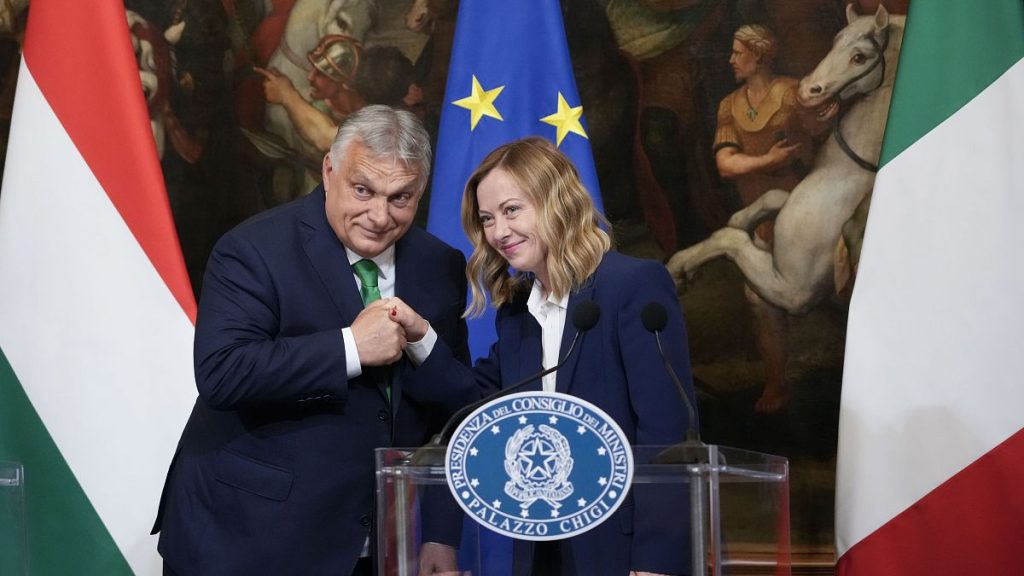Following the recent European Parliament elections, negotiations are underway to determine the structure of right-wing political groups in Brussels. Currently, the right wing is divided into two factions – the European Conservatives and Reformists (ECR) and the more radical Identity and Democracy (ID). However, sources suggest that two new groups may emerge, further fragmenting the right-wing presence in the European Parliament. The ECR, which includes Giorgia Meloni’s Brothers of Italy, was strengthened in the elections, becoming the third largest political force in the Parliament. Identity and Democracy has expressed openness to merging with the ECR to form a hard-right ‘supergroup’ to enhance their political influence in Brussels.
In order to form a new parliamentary group in the European Parliament, parties must bring together at least 23 lawmakers from a minimum of seven EU member states. With several newly elected right-wing parties seeking to find their political home, a significant reshuffling of the groups is a possibility. The far-right Alternative for Germany (AfD) was expelled from the ID group in May, leaving its 15 MEPs without a political affiliation. AfD is now looking to establish a new group called “The Sovereignists”, possibly including other parties such as Poland’s Konfederacja, Spain’s The Party’s Over, and Romania’s SOS. Additionally, Hungarian Prime Minister Viktor Orbán is exploring the formation of a nationalist, populist group with parties from Eastern Europe, including Fidesz, the Smer party in Slovakia, and the ANO party in the Czech Republic.
As negotiations continue, divisions within right-wing parties on topics such as the situation in Ukraine and EU integration are evident. While these parties may share similar views on migration and environmental policies, their stance on issues like the war in Ukraine creates obstacles to forming cohesive alliances. The ECR, currently the third-largest group in the European Parliament, is facing internal tensions regarding cooperation with the center-right European People’s Party (EPP). Some members, such as Giorgia Meloni’s Brothers of Italy and the Sweden Democrats, are in favor of closer ties with the EPP, while others, like the Law and Justice party (PiS) from Poland, are considering their options, including potentially leaving the group.
The postponement of the ECR’s constitutive meeting highlights the ongoing discussions between its main delegations, namely Fratelli d’Italia and the Law and Justice party. One of the key issues under debate is the presidency of the European Commission, which is set to be held by Ursula von der Leyen for a second term. While Meloni’s Italian lawmakers may support von der Leyen in exchange for a significant role for the future Italian commissioner, PiS is opposed to her appointment. The ECR faces a dilemma regarding its future direction in the next legislative term, debating whether to align more closely with the center-right EPP or maintain its more radical positions characteristic of the hard right. The potential departure of PiS from the group adds further uncertainty to the internal dynamics of the ECR moving forward.


